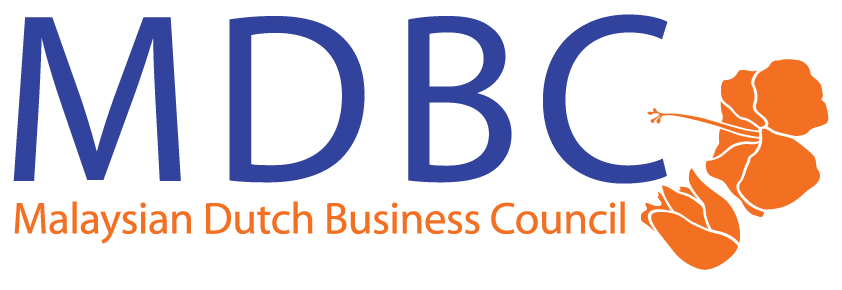The Netherlands has proven itself a particularly attractive destination for fintech companies in recent years and Dutch fintech regulators provide a crucial aspect to enable fintech business success in Europe.
The Dutch fintech ecosystem has experienced remarkable growth, expanding from 635 companies in 2019 to 861 in 2023, according to EY’s Dutch Fintech Census 2023.
In the first half of 2024 alone, investments in Dutch fintech grew by 39% year – on – year, driven by initiatives like the €200M Dutch Future Fund II which allocated funds to venture capital, helping to channel support towards fintech startups and scaleups.
This growth is particularly significant against a backdrop of a 25% decline in fintech investments across Europe, underscoring the resilience and attractiveness of the Dutch ecosystem. Today, the Netherlands boasts the EU’s second-largest fintech industry and ranks third in venture capital funding. Additionally, the country hosts Europe’s second-largest startup community in the Global Startup Ecosystem Report 2024.
Strong policy foundations
The Netherlands has ambitions to grow the Fintech sector further, which has been underpinned by strong policy foundations. In 2023, the Dutch Minister of Finance highlighted the major role that Dutch fintechs have played in providing innovative solutions in the financial sector, resulting in the sector gaining international recognition.
For example, the letter outlined that the government is focused on improving connections between fintech companies and supervisors through constructive dialogue and open communication channels.
It also demonstrated how the government is focused on creating a regulatory framework that accommodates new and future developments in fintech, ensuring innovation while maintaining consumer protection and financial stability.
Crucially, these aspects have put the fintech sector in the Netherlands firmly on the map. The letter cited research that showed that the country’s policies are in line with countries that are well – known for their fintech sectors, such as the UK and Singapore.
Role of Dutch regulators
The Dutch regulatory environment is a crucial aspect of the fintech sector’s success. It reflects regulatory principles that the goal is not to present red tape, but rather to be the green light for business success once the license is approved.
The Dutch regulatory landscape is characterized by its strong yet transparent processes. License applications are comprehensive, strict and fair, and once approved are seen as quality license to operate in the EU market. Dutch regulators are known to be open for dialogue and, as such, Dutch regulators encourage companies to engage with them to shape future regulations that align with industry innovations. The Netherlands actively embraces fintech innovations, as shown by the Dutch favoring electronic payments at the checkout more than any other European country. It is also a leader in digital payments, with the e-commerce payment system iDEAL integrated across its online banking system.
The Netherlands operates under a Twin Peak model of independent supervision, with the Dutch Central Bank (DNB) and the Netherlands Authority for the Financial Markets (AFM) serving as the primary regulators. The DNB oversees most regulatory aspects for fintechs, while the AFM supervises financial markets, including crypto-asset parties under MiCA regulations.
Industry leaders testament to Dutch Fintech success factors
The results speak for themselves. A range of fintech leaders have spoken highly of the Dutch fintech environment for its supportive and forward-thinking approach.
The range of regulatory aspects, in addition to access to the rest of Europe shines through in many testimonials. Vivien Cheung, Director of Strategic Partnerships, EMEA at Airwallex, said: “We wanted a blend of a forward-thinking regulator, a cohort of equivalent companies, and access to an impressive talent pool, specifically in payments and technology. Not to mention, Amsterdam’s proximity and great gateway access to Europe for international businesses.”
Others have cited positive engagement with the Dutch central bank, De Nederlandsche Bank (DNB). On reasons for choosing the Netherlands for its European HQ, the U.K. fintech Clearbank said: “We received a lot of positive feedback from fintechs that had previously engaged with De Nederlandsche Bank (DNB) that gave us confidence they would be supportive of our application. Our experience reinforced those views. While a banking license application is a complex process, it was a positive experience from the pre-application engagement through to the ongoing dialogue throughout the various stages.”
Meanwhile, the Dutch collaborative environment, mixed with access to its talent pool, was top of mind for U.S. fintech Lemonade, which said: “We chose to set up our European headquarters in the Netherlands and specifically Amsterdam, due to its collaborative and seasoned regulatory environment, coupled with a centralized hub of multilingual talent.”
The Netherlands offers a robust and supportive environment for fintech companies looking to establish and grow their presence in Europe. With a strong regulatory framework, open communication channels, and a thriving ecosystem, the Dutch fintech sector is poised for sustained success.
- Invest in Holland
